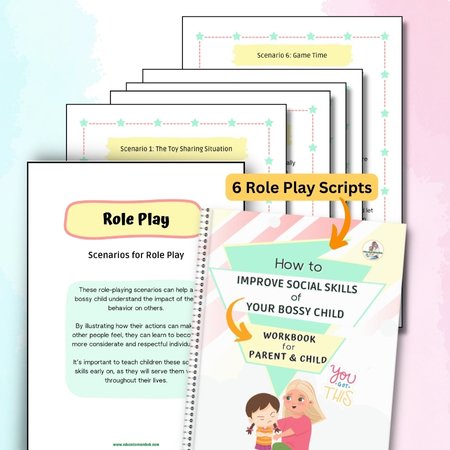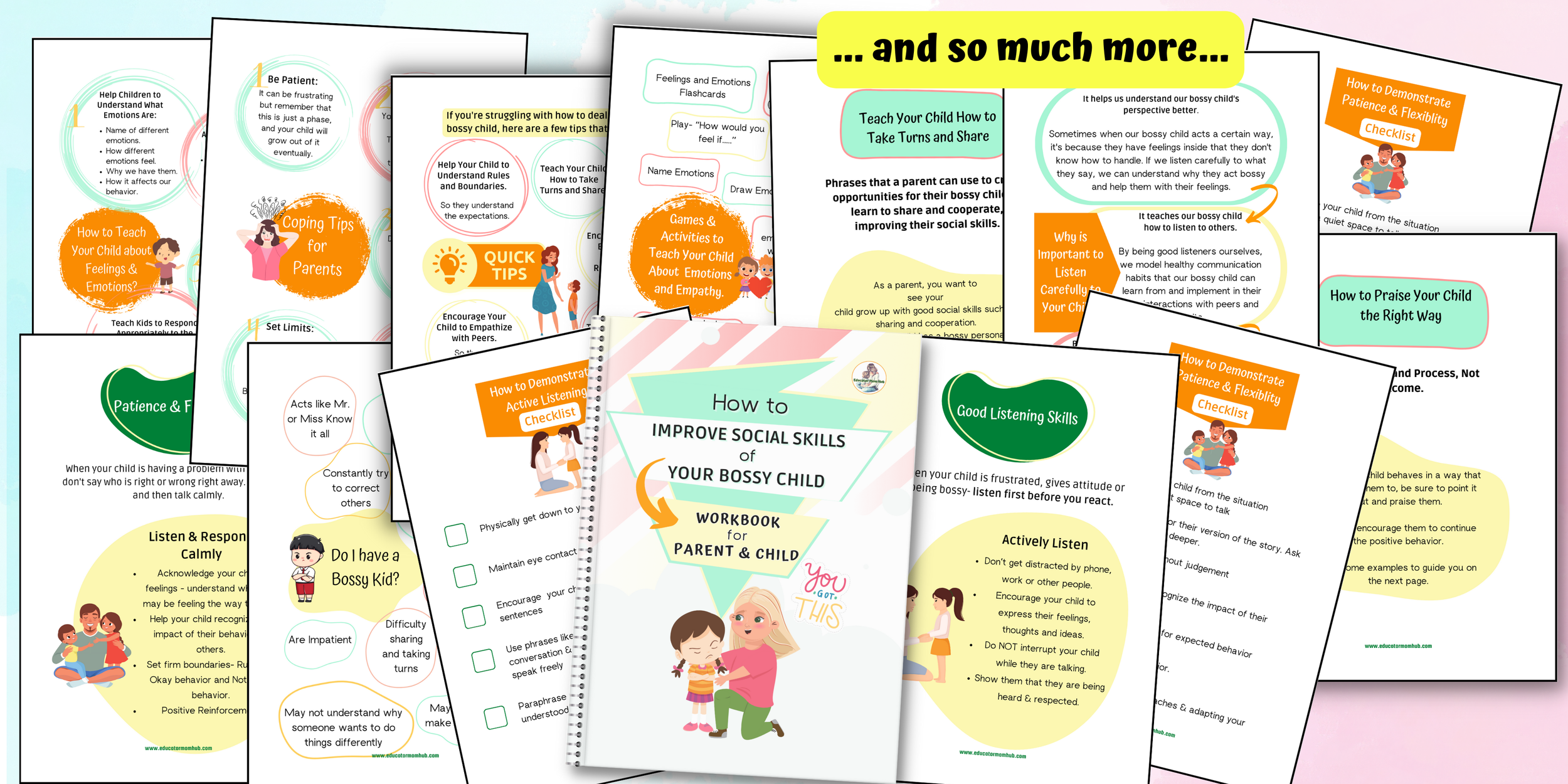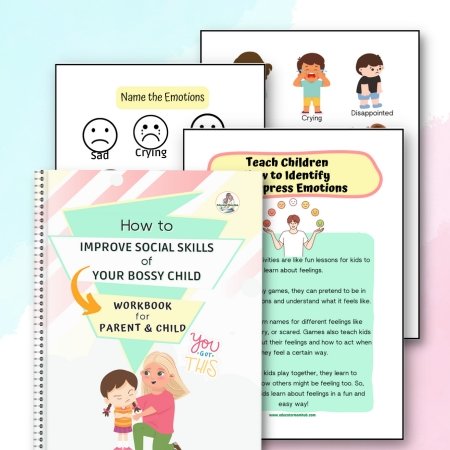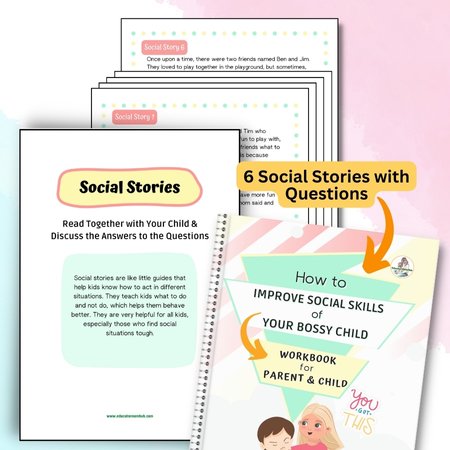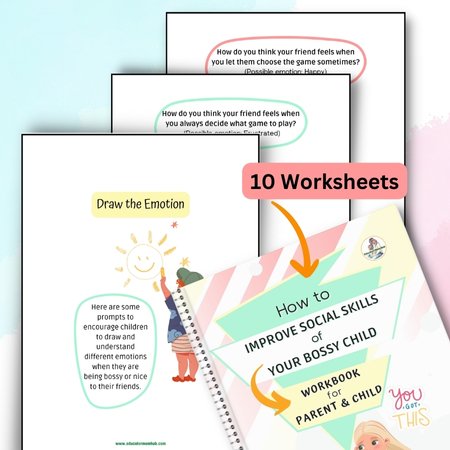Teaching Social Skills: A Parent’s Guide- Guiding Parents on Nurturing Essential Skills in Children
Parenting young children often comes with its fair share of challenges, from teaching empathy and patience to fostering leadership skills. As parents, we constantly seek meaningful ways to instill these values in our little ones.
1. The Art of Sharing
Many parents struggle with teaching their children the importance of sharing.
Children naturally tend to be possessive of their toys, which can lead to conflicts and missed opportunities for social growth.
Solution: Encourage sharing by incorporating playful activities that include taking turns. Create games where children can practice sharing in a fun and engaging way.
For example, set up a “Toy Swap” event where each child brings a toy, they're willing to lend for a play session.
This can help them experience the joy of playing with something new while understanding the mutual benefit of sharing.
Celebrating small acts of sharing with praise and rewards can further motivate children to share willingly and often, setting a strong foundation for social interactions.
For tips on how to teach sharing to kids visit How to Teach Kids Sharing Skills- Benefits and Boundaries
2. Practicing Patience
In a world of instant gratification, teaching patience can be quite the challenge.
Children may become frustrated when they have to wait, leading to emotional outbursts.
Solution: Use Storytime as an opportunity to build patience.
Pause during reading sessions to discuss characters' feelings and actions with your child. Todd the Frog's tales offer interactive moments that teach children to reflect and wait, helping them develop patience and attentiveness.
3. Understanding Empathy
Empathy is a complex concept for young minds, and parents often find it difficult to explain the importance of understanding others' emotions.
Solution: Role-playing different scenarios is an effective way to teach empathy. With
Todd the Frog, children can explore how others might feel in various situations, fostering a sense of compassion and understanding.
This approach not only nurtures emotional intelligence but also lays the groundwork for empathetic relationships.
Below are already ‘done for you’ scenarios that you can use for your role play as a parent or as a teacher. You can download them here.
Here are more ideas on How to Teach Empathy to Kids- With Everyday Opportunities and Pre-school Activities
4. The Value of Listening
Active listening is a skill that many children find challenging, often leading to misunderstandings and communication breakdowns.
Solution: Encourage active listening by teaching your child to make eye contact and respond with interest during conversations.
Be a role model for attentive listening. Showing children how be present and engaged can enhance communication and demonstrate respect.
Find parent tips on how to be a good listener and how to teach active listening skills to your child with loads of activities for kids download the book above.
5. Finding Balance in Leadership
Children may struggle with understanding the difference between leading and being bossy, which can impact their ability to work well with others.
Solution: Guide your child to lead with kindness by setting examples of cooperative play.
Todd the Frog's leadership stories highlight the value of including others' ideas and making decisions as a team. This inclusive approach helps children develop empathy, collaboration, and confidence in leadership roles.
Here are 11 Amazing Benefits of Cooperative Play for Preschoolers
6. Enhancing Social Skills
While guiding your child through the nuanced balance of leadership and cooperation, consider introducing resources that further support their development.
One such resource is our book, How to Improve the Social Skills of Your Bossy Child: A Workbook for Parent and Child.
This workbook is designed for Parents of 4–8-year-olds who are seeking effective methods to nurture their child's social development.
A Comprehensive Guide
The workbook provides a series of exercises and prompts that encourage children to reflect on their behavior, understand the impact of their actions, and develop essential social skills.
By working alongside Todd the Frog's stories, this resource offers a cohesive approach to nurturing empathy, patience, and leadership.
Interactive Activities
Through engaging activities, children can practice important social skills in a supportive and interactive environment. Each section of the workbook is crafted to reinforce positive behavior, making it a valuable addition to your parenting toolkit. Here are a few examples below of what you can expect from the book.
Building a Strong Foundation
How to Improve the Social Skills of Your Bossy Child is not just about addressing specific challenges; it's about building a strong foundation for future interactions.
By incorporating this workbook into your routine, you're equipping your child with the tools they need to navigate social situations with confidence and grace.
By leveraging the insights from both Todd the Frog's tales and this workbook, you can guide your child toward becoming a well-rounded, empathetic individual.
Frequently Asked Questions
1. How can I help my child share more willingly?
Question: My child is quite possessive of their toys and struggles with sharing. How can I encourage them to share more willingly?
Answer: Organize playdates where sharing is necessary, like building a group Lego project. Highlight the fun of creating something together and emphasize teamwork. Celebrate every instance of sharing with praise to reinforce the behavior positively.
2. What strategies can I use to teach my child patience?
Question: Teaching patience is a challenge in our fast-paced world. What strategies can I use to help my child develop this skill?
Answer: Introduce simple board games that require turn-taking, such as “Snakes and Ladders.” These games naturally build patience as children wait for their turn. Discuss the importance of waiting and how it can lead to positive outcomes in the game and real life.
3. How do I explain empathy to my young child?
Question: Empathy is a complex concept. How can I effectively explain and teach empathy to my young child?
Answer: Use everyday situations to discuss feelings. For example, if another child is upset, ask your child how they think the other child feels and what might help them feel better. This practice helps children learn to consider others' emotions.
4. How can I improve my child's listening skills?
Question: My child struggles with active listening, often leading to misunderstandings. How can I improve their listening skills?
Answer: Practice listening through interactive storytelling. Pause and ask questions about the story, encouraging your child to summarize what they heard. This exercise trains them to listen carefully and process information actively.
5. What resources are available to help develop my child's social skills?
Question: I'm looking for resources to help develop my child's social skills. What do you recommend?
Answer: Explore social skills workshops or local community programs designed for children. These often include group activities that foster interaction and teach essential social behaviors in a supportive environment, reinforcing lessons learned at home.





